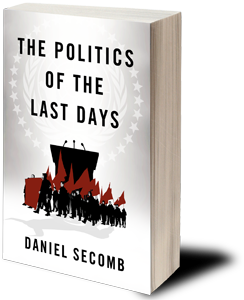
Multiple polls have indicated that socialism continues to gain support in the United States, especially among younger generations and political liberals.
A Harris Poll from March 2019 found that nearly half of millennials and Generation Z Americans said they would prefer to live in a socialist country.
A Gallup poll from May of last year found that 43% of Americans believed socialism would be a “good thing” for the country, well above the 25% reported back in 1942.
Last October, a YouGov–Victims of Communism Memorial Foundation poll found greater support for socialism among millennials and Generation Z than Generation X and Baby Boomers.
According to that poll, 70% of millennial respondents said they were either somewhat or extremely likely to vote for a socialist presidential candidate, with 51% of the same generation having a negative view of capitalism.
In February, an NPR/PBS NewsHour/Marist poll reported that while the socialism label remained unpopular among the general population, it found popularity among self-identified Democrats.
The NPR poll found that 50% of Democrats rated socialism favorably, versus 46% of them who rated capitalism favorably, with the findings also noting increased support for socialism among younger respondents.
Commonly defined as advocating for collective or state-sponsored control of production and distribution of goods, socialism has also garnered a great deal of election-year attention from the political right.
The Conservative Political Action Conference, the largest annual gathering of conservatives in America, made their theme for this year, “America vs. Socialism.”
President Donald Trump also invoked anti-socialism rhetoric, denouncing the economic theory in his 2019 State of the Union speech.
“Here in the United States, we are alarmed by the new calls to adopt socialism in our country,” he said at the time. “America was founded on liberty and independence and not government coercion, domination and control. We are born free and we will stay free.”
The rhetoric has also been part of the Trump reelection campaign, with his campaign site including such declarations as “NEVER SOCIALISM.”
Notable apologist Alex McFarland told The Christian Post that he felt the need to address socialism more in his work because he has seen “the growing interest in socialism among young people.”
“I hear and see about it so much, just almost every day, and not only among teens and 20-somethings that I talk to and dialogue with, but among concerned parents, concerned ministers, concerned educators,” McFarland said.
Matt Slick of the Christian Apologetics & Research Ministry also said he’s seeing a rising interest in socialism among those he engages with on apologetics.
“Yes, I have seen a definite increase in the topic of socialism from Christians. I have a call-in radio show where people ask me questions. I’ve noticed a definite increase in inquiries regarding socialism,” Slick said.
Kerby Anderson, host of the “Point of View” radio talk show, told C.P. that he’s had multiple guests talk about socialism and has witnessed what the polls indicate about socialism and young people.
“For years, we have documented the fact that the younger you are, the more likely you are to believe socialism is better than capitalism,” Anderson said.
Should Christian apologists and apologetic groups make a greater effort to tackle the issue of socialism? Are socialism and Christianity fundamentally incompatible?
The Christian Post interviewed multiple apologists on that question, and asked a scholar about the relationship between American Christianity and socialism, to analyze the issues.
‘A topic that deserves more attention’
Some Christian leaders and apologists have offered recent critiques of socialism. This includes an April 19 episode of McFarland’s “Truth for a New Generation” series, an essay on the CARM website by Slick published on April 28, and a YouTube video by Russell Moore, president of the Southern Baptist Convention’s Ethics & Religious Liberty Commission.
“I hate socialism,” declared Moore in the 2019 video, arguing in part that socialism holds “a faulty view of human nature.”
It can seem attractive to people. But I think it’s only attractive to those who have never seen it really up close.”
Apologists like Anderson believe that Christian apologists should do more to focus on socialism, telling C.P. that while he saw many Christian political commentators and “worldview ministries” tackle the matter, he was “not aware of too many Christian apologists who are addressing the issue.”
“We have been addressing the issue of socialism for decades and believe that this is a topic that deserves more attention. Thousands of young people are graduating from high school and college with an inaccurate understanding of socialism,” Anderson said.
McFarland also believes Christian apologetics should be doing more to address socialism, telling C.P. that apologists “should speak out in favor of free-market capitalism” and “should overtly speak against the rise of socialism.”
“When it comes to defending God or the Bible or Jesus, there are a lot of great apologists,” McFarland said.
“But in terms of apologists specifically addressing the political schemes of the left, and by name calling out people that have malicious designs for America, most apologists don’t have the fortitude to really get in the down and dirty fray of defending the country or the economic model that has been our M.O. for two centuries plus.”
McFarland attributed this apparent refusal to engage on the topic of socialism to his belief that many apologists “often are reticent to say publicly what they might be thinking privately.”
“I could not name an apologist other than myself that came out for President Trump in late 2015, early 2016,” he added.
“In fact, most of my fellow apologists castigated me when, by February of 2016, I was saying Trump would be the nominee and Christians ought to vote for him.”
As with Anderson, McFarland believes that education played a major role in the increased support for socialism among younger generations.
McFarland has spoken at around 200 universities and colleges in the U.S., about half of which were public institutions.
“Overwhelmingly, faculty leans left of center and not only socially and morally and theologically, but politically and economically,” McFarland said.
“Many of the educators that young people sit under or have sat under lean toward socialism, if not overt communism. And this has had a big influence on their view of economics and America.”
‘Biblically uninformed’ support
When it comes to whether Christianity and socialism are compatible ideologies, McFarland and other apologists view it as a definite no.
McFarland reasoned that socialism is contrary to Christianity because it is inherently secular and advocates for forced charity rather than voluntary giving.
“I know people are well-intentioned, but socialism inherently is secular and it’s secularism that denies moral absolutes,” he said.
“If you are a Christian, if you are a follower of Jesus, and I would say a thinking reflective Christian who’s willing to really sort through this, you really could not in good conscience advocate for socialism.”
Slick of CARM told C.P. that when it comes to socialism, “its principles contradict Scripture” and that Christians who lean socialist are “biblically uninformed” and indoctrinated by “the leftist media and school system.”
“However, Christians who have studied this issue in light of Scripture, which is rare, soon discover that socialistic principles are not biblical. Therefore, the Christian ought not to affirm the basic tenets of socialism,” Slick stressed.
Socialism, he added, “demotivates people by confiscating their production and giving it to others.”
“Socialism reduces and removes private property rights, lessens the self-governance of the people, removes or restricts liberty, and contradicts the capitalist principles found in God’s Word,” he said.
William Federer, a conservative Christian author and speaker, has tackled the topic of socialism in a few of his books, namely Change to Chains: The 6,000 Year Quest for Global Control and Rise of the Tyrant — How Democracies & Republics Rise & Fall.
In an interview with CP, Federer described socialism as “a perversion of biblical covenant” and said “socialism and communism” are “effectively just varying degrees of repackaged dictatorship.”
“There is no biblical command for government to help the poor, or take care of the sick, or operate schools, or provide jobs, healthcare, education, or other entitlements,” said Federer.
“Early Christians sold their property and brought the money to the feet of the apostles for the church to distribute. They did not lay their money at the feet of Pilate for the Roman government to redistribute.”
Federer sees the Bible as commanding churches and individuals to give, with the government having as its chief purpose to “protect the innocent and punish the guilty.”
“Most hospitals, as well as schools and universities, historically, have been started by religious orders or denominations,” he continued. “Christian organizations have been at the forefront of carrying out these responsibilities on the mission field.”
Socialism has a track record of failure, he said, noting that, for a time, the Pilgrims of colonial America had a society centered on redistributing wealth.
“It did not work and the Pilgrims almost starved to death, until Governor William Bradford abandoned this ‘communistic plan of life’ and gave everyone their own plot of land,” Federer said.
Federer also referenced a 1926 speech from then-President Calvin Coolidge, in which the commander-in-chief rejected the idea of any “plan of centralization.”
“No plan of centralization has ever been adopted which did not result in bureaucracy, tyranny, inflexibility, reaction, and decline. Of all forms of government, those administered by bureaus are about the least satisfactory to an enlightened and progressive people,” stated Coolidge. “Being irresponsible, they become autocratic, and being autocratic, they resist all development. Unless bureaucracy is constantly resisted, it breaks down representative government and overwhelms democracy.”
Anderson also viewed socialism as a threat to human liberty, telling C.P. that socialism “places too much power in the hands of the state and leads to authoritarian governments.”
Christians on ‘different places on the political spectrum’
In his YouTube video criticizing socialism, Moore of ERLC said, “of course” someone can be a Christian and a socialist, adding that they can be “right or wrong” about most every political issue “and still trust in Christ.”
In his book, The Prodigal Prophet, pastor and theologian Timothy Keller recounted an anecdote from a friend who knew a conservative Christian Republican from Mississippi.
According to Keller, the Mississippi Republican visited a Presbyterian community in Scotland for a month and found them to be conservative on social issues and theology.
“However,” wrote Keller, “one day he got into a discussion with several of his admired Scottish Christians and discovered, to his shock, that they were all (in his view) socialists. That is, their understanding of tax structure and government economic policy was very left-wing.”
“He realized that thoughtful Christians, all trying to obey God’s call, can reasonably appear at a number of different places on the political spectrum, with loyalties to different political parties.”
James Patrick Holding of the popular apologetics website Tektonics.org, told C.P. that he believed apologists should be “more engaged with the subject” but offered some caution over errors that he feared Christian critics of socialism often fall into.
He fears that too many apologists fail to distinguish between government-sponsored socialism and church-sponsored socialism.
“The early church clearly sponsored an aspect of voluntary socialism (Acts 4:32-35) under the premise that God was the ultimate owner of all they had, so they were obliged to be generous with, and be good stewards of, the resources entrusted to them. Jesus makes the same point in the parable of the ten minas (Luke 19),” Holding said.
“This type of socialism is inherent in Christianity, but the critiques I have seen don’t even seem to realize that it is socialism.”
Another error, said Holding, is the notion that “socialism encourages or is based on some moral failing like envy or materialism.”
“I’m sure it can be used as a tool to encourage such failings, but so can capitalism. These moral failings are endemic in humans who find ways to abuse whatever system is at hand, so it’s not a valid argument against socialism,” he continued.
Holding also cautioned against elevating American culture too highly in the debate, noting that American individualism goes against the “collectivist” mindset often found in the Bible.
“The people of the biblical world were collectivist in social outlook. They related to each other in terms of their embedded identity in groups and their standing in their network of relationships,” he explained.
“In a society like that, what you do for the group is paramount. What you do for yourself as an individual was less important, especially when it might impair the group’s ability to survive.”
The idea of socialism and Christianity being incompatible would have also been a surprise to many Christians living in the U.S. during the late 19th and early 20th centuries.
Jack Jenkins, a reporter at Religion News Service and author of the recently released history book, American Prophets: The Religious Roots of Progressive Politics and the Ongoing Fight for the Soul of the Country, told C.P. that “it’s difficult, if not impossible, to cleanly extricate early American socialism from its religious roots.”
Notable Christian socialists included African American intellectual and author W.E.B. DuBois and Baptist minister Francis Bellamy, who authored the original Pledge of Allegiance.
“Arguably even more influential was an overlapping phenomenon known as the Social Gospel movement, a Christian effort that was stalwartly critical of capitalism,” Jenkins said.
“Social Gospelers didn’t always identify as socialist, but many of the movement’s loudest voices such as Walter Rauschenbusch, a Baptist minister, railed against what they saw as the evils of the American capitalist system. As Rauschenbusch put it in his A Theology of the Social Gospel, ‘if we can trust the Bible, God is against capitalism, its methods, spirit, and results.'”
Jenkins did note that over time the movement lost strength, explaining to C.P. that “the Christian socialist movement” was a lot “stronger in 1920 than it is in 2020.”
Nevertheless, he cited multiple examples of religious socialists in modern American politics, such as academic Cornel West and Congresswoman Alexandria Ocasio-Cortez.
Regarding the issue of apologists critiquing socialism, Jenkins believes that as socialism continues to garner support and attention, such critiques will likely grow.
“Generally speaking, as the profile of democratic socialism in the United States grows, and with it, the profile of religious socialists, Christian or otherwise, I fully expect challenges to Christian socialist theology to emerge,” Jenkins said.
“Or, perhaps more appropriately, reemerge. While Christian socialism isn’t new, neither are critiques against it.”
Source: Christian Post
 Register your interest for Daniel Secomb's new book, "Politics of the Last Days"
Register your interest for Daniel Secomb's new book, "Politics of the Last Days"
Daniel's new book explores the integral and fascinating role that politics will play in the end times.
He demonstrates that political philosophy is actually underpinned by biblcal principles and that by examining the political history of the past can give us a fascinating glimpse into how Biblical end times events will unfold.
Be sure to sign up with your name and email address to be notified of updates and the upcoming release date of the book.



















